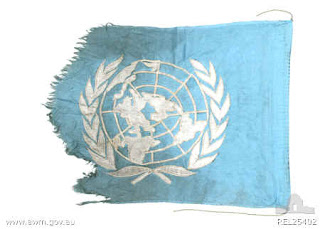Malawi’s switching relations from Taipei to Beijing on Jan. 14 is already having repercussions on the lives of ordinary Malawians — and not necessarily for the better.
 The ink on the new diplomatic relationship hadn’t yet dried when the Chinese ambassador to Uganda, visiting Malawi this week, said that the 26 Malawian students currently studying in Taiwan should be transferred to China. In other words, relations with Beijing now means that Malawian students don’t get to choose where they go; they are ordered by Beijing. Not only does this constitute yet another attempt to humiliate Taiwan — which said that no matter what, the students would be allowed to remain in Taiwan should they choose to do so — but it is also an attempt to “shield” those poor Malawians from the terrible influence of living in a democracy. It would be much safer for them, in Beijing's Orwellian worldview, if they could continue their studies in an authoritarian state where the information they receive and that finds its way into their curriculum is filtered from above.
The ink on the new diplomatic relationship hadn’t yet dried when the Chinese ambassador to Uganda, visiting Malawi this week, said that the 26 Malawian students currently studying in Taiwan should be transferred to China. In other words, relations with Beijing now means that Malawian students don’t get to choose where they go; they are ordered by Beijing. Not only does this constitute yet another attempt to humiliate Taiwan — which said that no matter what, the students would be allowed to remain in Taiwan should they choose to do so — but it is also an attempt to “shield” those poor Malawians from the terrible influence of living in a democracy. It would be much safer for them, in Beijing's Orwellian worldview, if they could continue their studies in an authoritarian state where the information they receive and that finds its way into their curriculum is filtered from above.Meanwhile, whatever benefits that are to be reaped from the new diplomatic ties will remain in the hands of a few back in Malawi and will certainly not trickle down to improve the lives of the ordinary people. For despite the loads of money Beijing is said to have offered Malawi to abandon Taiwan, the former cares not one iota for the welfare of Malawians. The development projects initiated by Taiwan that Beijing claims it wants to take over will become mired in corruption, or will simply be abandoned when — and this is to be expected — Beijing breaks its promises and the money fails to materialize.
For readers of this site who are based in Asia, such developments have nothing unusual about them. At the WHO, for example, Taiwan and its allies are routinely humiliated, repressed and snubbed, and, despite Beijing’s claim to the contrary, the rights of the 23 million Taiwanese ignored.
Readers who are not based in the region, however, may not be aware of this. But little by little, Taiwan’s democracy is getting crushed by Beijing. I have tried, on a few occasions, to raise the issue with publishers in North America — especially at the height of Taiwan’s bid to join the WHO — but absent a regular flow of information on the subject, the interest simply isn’t there. Politics, such as elections, are mentioned briefly in international pages, but the human impact — hell, the health impact — never finds its way in.
More and more it looks like the only way Taiwan can remain an independent democracy will be for the regime in Beijing to be overthrown. Anything less, given the regime’s inflexibility, will likely fail.
The rest of the world must know.
Ironically, a few hours after I made this entry the Nyasa Times, a Malawian newspaper, was reporting the following:
[Malaysian] Minister of Presidential and Parliamentary Affairs Davis Katsonga has angered President Bingu wa Mutharika who has since demanded his immediate return to Malawi and hand back the sweetener he collected from Mainland China. Kastonga is said to have pocketed the “Chinese sweetener” meant for the President for sanctioning [the Dec. 28] diplomatic switch from Taiwan to Beijing, government sources have [said].
Sources at State House said Katsonga, a close ally to Mutharika, has not remitted a substantial amount of money running into billions of Kwachas from the Chinese dragons for the Democratic Progressive Party (DPP) 2009 general elections. "Honourable Katsonga has angered the President [Mutharika] since his return from China [,] where he signed the memorandum of understanding that established the China-Malawi diplomatic relations."
[…]
The Nation newspaper revealed that Katsonga was on the run [after] he left Malawi on January 16 for the United Kingdom through [the] Malawi-Zambia boarder [sic] […] He is believed to have boarded via Lusaka International Airport the following day.
[…]
[The Malawian] Government has downplayed […] Katsonga’s exit [,] describing it as a private holiday.
[…]
Some observers say they have warned the President and DPP officials to tread carefully in their pursuit for the fruits of the Chinese chequebook diplomacy as Katsonga can reveal damaging secrets in his defense. And [the] Mutharika cabinet has since agreed to damage control the matter, according to sources.




















